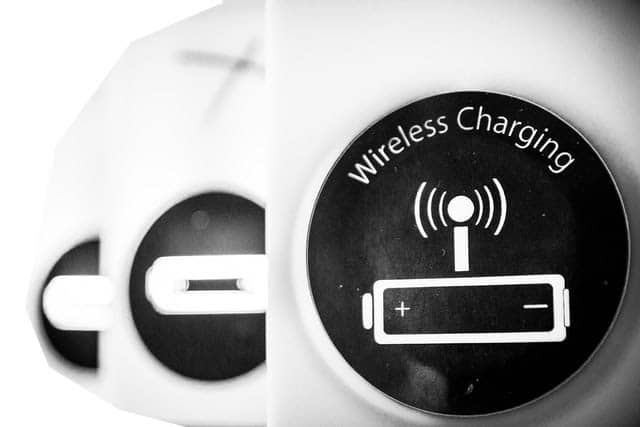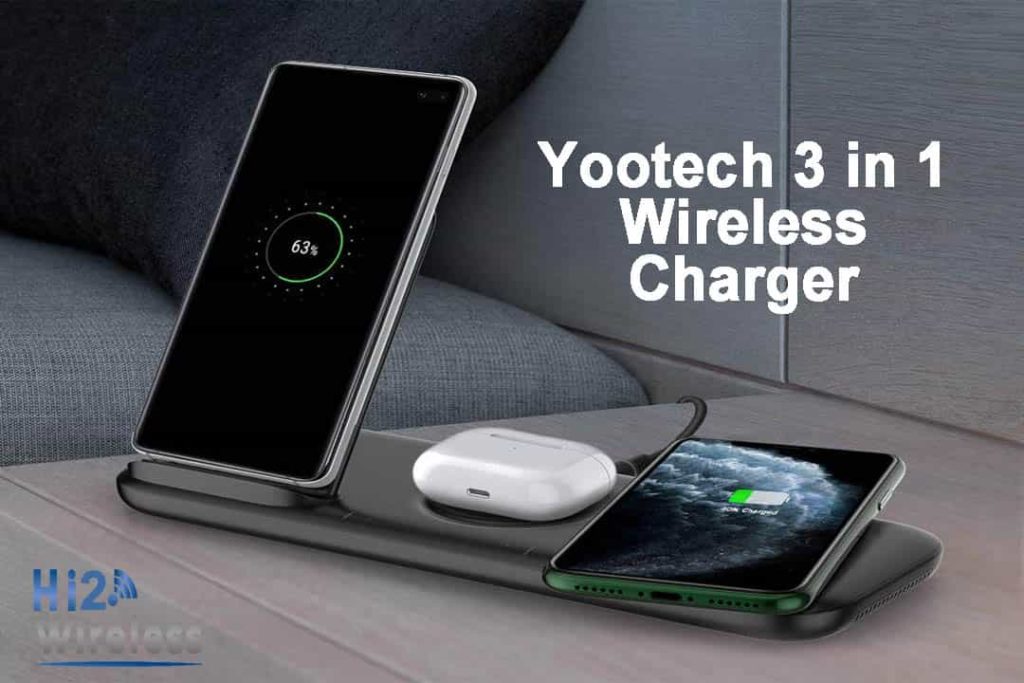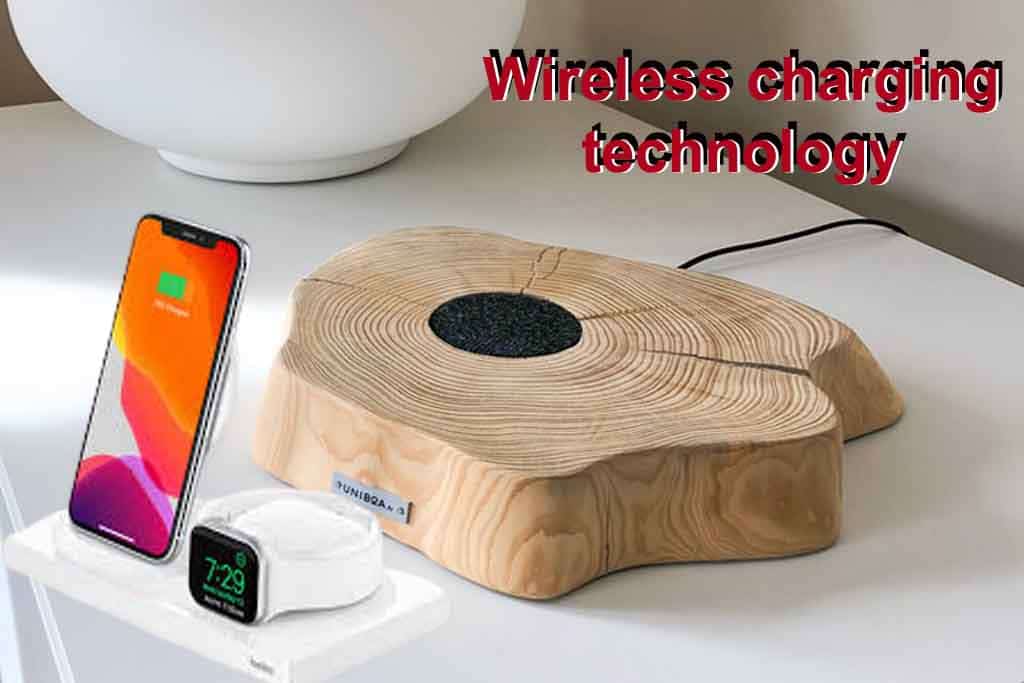Wireless chargers appeared as a new option for smartphone users, and Samsung was the leader in this industry, and then companies competed to develop the best versions of these chargers, which users found an easy and popular option for charging their phones. So the question was how do wireless charging technology work? Is it better than regular chargers?
– Wireless Charging Technology:
The problem of cables in mobile phone chargers has always plagued us, but with technological development, a solution has been found to this problem, as it is now possible to charge smartphones without cables thanks to wireless chargers, and devices in this technology are supplied with electrical energy through electromagnetic fields.
Wireless charging technology makes it easier for us as users so that you do not need to search for connectors and chargers or search for energy supplies that are difficult to access, and you do not need to disconnect the charger or cable when you need to use the device.
In addition to providing comfort to the user, this technology also works to maintain his safety, as the wireless charging technology reduces the possibility of risks resulting from electric shocks.
Perhaps one of the most popular applications and uses for wireless chargers or Wireless Charging Technology is charging smartphones, but the car market is not far from this technology, as some companies such as Mercedes and Audi have supported this wireless charging technology within some models of their cars as it enables you to charge your smartphone while you are in Your way, and some major companies have also activated features and features that are compatible with many of our daily business, including integrating this technology with some electronic offices so that your smartphone can charge as soon as it is placed on your desk.

Wireless Charging Date
The concept of wireless energy appeared for the first time by the scientist Nicholas Tesla about a hundred and fifty years ago, and this scientist was the one who developed the basics of electric power with alternating current and invented the electric motor that works by an alternating current that depends on the concept of wireless energy.
Read More: Tesla launches car insurance offering
The Wireless Energy Consortium was established in 2008 with members from different countries of the world from Europe, Asia, and America, and from several major companies that established a so-called project called IQ to work on providing wireless charging technology for mobile smartphones.
Wireless charging standards
There are several standards for wireless charging. The main technology is IQ technology, pronounced “qi”, and Qi is the standard developed by the Wireless Energy Association.
This technology has three classes for charging power, which is low power, which can provide up to 5 watts, which is used to charge phones, in addition to medium power, which can provide about 120 watts, and it is used for surveillance devices and laptops, and there is also high power. Which can save you up to 1KW.
IQ technology for wireless charging has been adopted by many smartphone manufacturers such as Apple, Samsung, Sony, Huawei, Nokia, Nokia, Blackberry, and LG LG, and the second technology that can replace Chi technology is AMP technology that also works on charging Induction by magnetic resonance.

– How do wireless chargers work?
The main method of charging smartphones through smart chargers is through a technology called QI, which is a standard mechanism used to transfer energy through the charging base, or in another way, it is a transfer using an electromagnetic field between the mobile phone and the charging base.
In order to do this successfully, you must use two coils, the first coil inside the charger that creates an electromagnetic field, and the second coil in the receiving device of electric energy, which converts this electromagnetic field into electricity again.
With Wireless charging technology, you don’t have to use a Lightning cable or a USB-C cable … you can just place your phone on a wireless charging base or dock and it will start receiving power. Plus, phones that support wireless charging have become affordable for everyone, when it comes to choosing the best wireless charger, it’s not a one-size-fits-all scale. There are single-device wireless chargers that are very distinctive in terms of providing power to one phone and more versatile wireless chargers for those who want to operate up to three devices simultaneously.
The main method of charging smartphones through smart chargers is through a technology called QI, which is a standard mechanism used to transfer energy through the charging base, and the method of wireless charging depends on two methods:
- Inductive charging: This is the method in which a magnetic field is used to transfer energy between the charger and the device.
- A transmitter and receiver device to create a magnetic field.
The most important pros and cons of a wireless charger:
Wireless charging features
- It is a safe, easy, and simple way to charge a smartphone.
- Technology that preserves the charging port of the phone and also the cable due to their limited use.
- Charge the phone anywhere when the battery is running out and there is no charging cable.
There is no doubt that the ease of use and comfort that a wireless charger provides in terms of getting rid of wires is one of its best features, and what can really be counted for this wonderful technology is that you will greatly reduce the chances of damage to your charging port because you will not use it much at all, some of us sometimes In a hurry, which leads him to withdraw the phone from the charger in a quick way that may damage the port.
Disadvantages of wireless charging
- When using the phone while charging, we will have to move it from the base, which will cause the charging process to stop, so the process of using the phone while charging may be difficult.
- The charging process is somewhat slow as wireless charging provides only 5 watts of power, which is equivalent to a 1 amp charger, while the phone will need 2 amp chargers if it supports fast charging technology.
- Wireless charging accessories and adapters are somewhat expensive as the technology itself is generally expensive.
Are you a fan of wireless charging technology? Are there any types of your favorite wireless chargers? Share your experience with us here as we are always pleased.
*********************************

